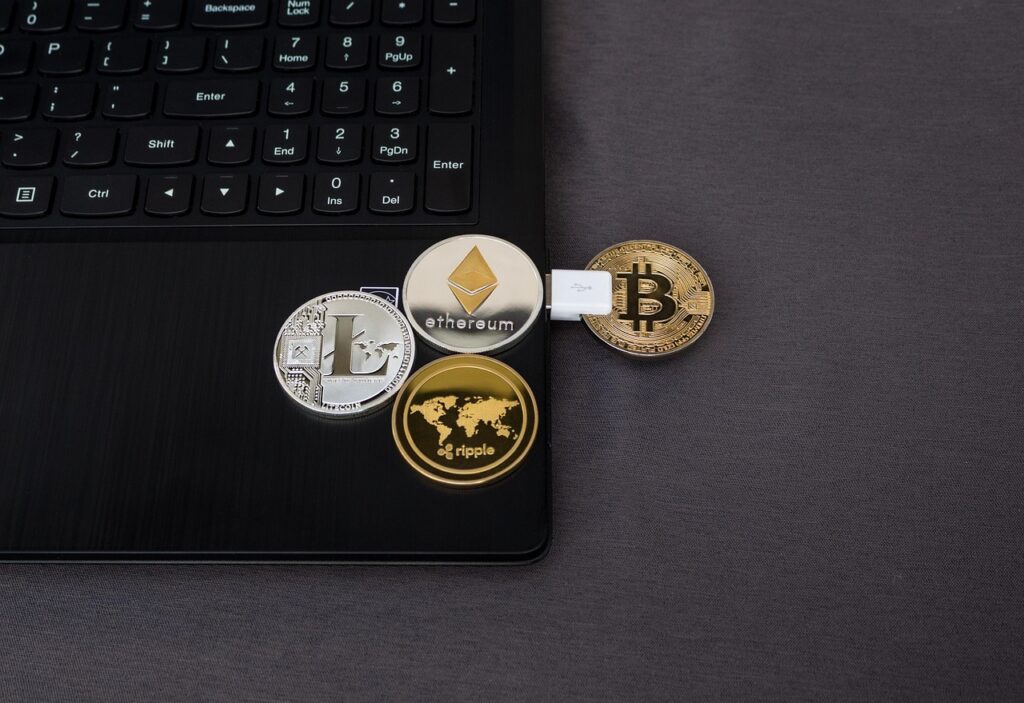Ever wondered about using your crypto to buy a house or get a loan? It might sound a bit out there, but with how fast things are changing in finance, crypto lending and mortgages are becoming real options. This article will break down how crypto lending works, what a crypto mortgage is, and everything else you need to know about using your digital assets in the world of real estate and finance.
Table of Contents
- 1 What Is Crypto Lending and How Do Crypto Mortgages Work?
- 2 The Rise of Blockchain Technology in Real Estate and Finance
- 3 What Is Crypto Lending? A Simple Explanation
- 4 How Do Crypto-Backed Loans Function in the Lending Market?
- 5 What Is a Crypto Mortgage and How Is It Different from Traditional Mortgages?
- 6 Types of Crypto Assets Commonly Used for Lending and Mortgages
- 7 How to Qualify for a Crypto Mortgage: Key Requirements
- 8 Steps to Apply for a Mortgage with Cryptocurrency Collateral
- 9 Benefits of Using Crypto for Lending and Real Estate Purchases
- 10 Risks and Volatility: What Borrowers Must Know Before Using Crypto
- 11 Crypto Lending Platforms: Choosing the Right Service for Your Needs
- 12 Key Factors to Consider
- 13 Popular Crypto Lending Platforms
- 14 Risks to Keep in Mind
- 15 Is Crypto Lending Legal and Regulated in Your Country?
- 16 Frequently Asked Questions
- 17 What exactly is crypto lending?
- 18 How does a crypto mortgage work?
- 19 What makes a crypto mortgage different from a regular mortgage?
- 20 Which cryptocurrencies are typically used for these types of loans?
- 21 What are the main advantages of using crypto for a loan or mortgage?
- 22 What are the risks involved with crypto lending and mortgages?
- 23 What do I need to qualify for a crypto mortgage?
- 24 Is crypto lending legal everywhere?
What Is Crypto Lending and How Do Crypto Mortgages Work?

Okay, let’s break down what crypto lending and crypto mortgages are. It’s not as complicated as it sounds, even if the tech behind it can be a bit mind-bending. Both involve using your cryptocurrency holdings in ways you might traditionally use cash or assets like a house.
Crypto lending is like getting a loan, but instead of using your credit score or a physical asset as collateral, you use your crypto. You pledge a portion of your crypto, and in return, you get a loan in cash or another cryptocurrency. The cool thing is, you don’t have to sell your crypto, so you can still benefit if its value goes up. But if you can’t repay the loan, the lender gets to keep your crypto. It’s a bit like a pawn shop, but with digital coins.
Crypto mortgages are similar, but specifically for buying property. Instead of a traditional down payment, you use your crypto as collateral. This can be a game-changer for people who have a lot of crypto but not a lot of cash. Some fintech companies are even offering mortgages where you can avoid a down payment altogether if you put up enough crypto. However, like any mortgage, if you fail to make payments, you risk losing your property and your crypto collateral. It’s a high-stakes game, but it can open doors for some people.
It’s important to remember that the crypto market is volatile. The value of your collateral can change rapidly, which can affect your loan or mortgage. Always do your research and understand the risks before diving in.
Here’s a quick comparison:
| Feature | Crypto Lending | Crypto Mortgage |
| Purpose | Borrow money for any reason | Purchase real estate |
| Collateral | Cryptocurrency | Cryptocurrency |
| Risk | Losing crypto collateral | Losing crypto collateral and property |
| Benefit | Access to funds without selling crypto | Homeownership without a traditional down payment |
Think of it this way:
- Crypto lending: Use your crypto holdings as collateral for a loan.
- Crypto mortgages: Use crypto to secure a mortgage.
- Both involve risk: If you can’t repay, you lose your crypto.
The Rise of Blockchain Technology in Real Estate and Finance
Blockchain tech is making waves, and not just in the crypto world. It’s starting to pop up in real estate and finance, promising some pretty big changes. I mean, who would’ve thought we’d be talking about using the same tech behind Bitcoin to buy a house?
Blockchain’s transparent and secure nature can streamline the entire real estate transaction process.
Think about it: buying property involves tons of paperwork, title searches, and escrow accounts. It’s a mess. Blockchain could potentially cut out a lot of the red tape and even reduce fraud. It’s still early days, but the potential is there.
The idea of tokenizing property is also gaining traction. Instead of one person owning a whole building, it could be split into digital tokens, allowing multiple people to co-own it. This could open up real estate investment to a lot more people, but there are still legal and regulatory hurdles to clear.
Here are some potential benefits of blockchain in real estate:
- Faster transactions
- Reduced costs
- Increased transparency
- Fractional ownership opportunities
Of course, there are challenges too. The legal framework isn’t fully in place yet, and it’s not clear if traditional real estate pros will embrace this new tech. But it’s something to keep an eye on.
What Is Crypto Lending? A Simple Explanation
Crypto lending is borrowing money, but instead of using something like a house or a car as collateral, you use your cryptocurrency. Think of it as a pawn shop, but for digital assets. You put up some of your crypto, and in return, you get a loan. It’s a way to get cash without selling your crypto holdings.
The main idea is that you can access funds without having to cash out your crypto investments.
It’s become a popular option for crypto holders who need some quick cash but don’t want to give up their potential gains. But, like anything in the crypto world, it comes with risks. You need to understand how it works before jumping in.
Here’s a breakdown:
- You deposit your crypto on a lending platform.
- The platform determines how much you can borrow based on the value of your crypto.
- You receive the loan, usually in a stablecoin or fiat currency.
- You pay back the loan with interest over time.
- Once the loan is repaid, you get your crypto back.
Crypto lending platforms act as the middleman, connecting borrowers and lenders. They handle the loan process, manage collateral, and distribute interest payments. It’s important to choose a reputable platform to minimize risks.
Crypto lending can also work in reverse. You can lend out your crypto to others and earn interest on it. It’s like putting your money in a savings account, but with potentially higher returns. Of course, higher returns usually mean higher risks, so it’s important to do your research and understand the platform you’re using. You can earn passive income with cryptocurrency, much like how a traditional bank lends out physical currency, and lenders can earn interest.
How Do Crypto-Backed Loans Function in the Lending Market?

Crypto-backed loans are shaking things up in the lending world. Instead of using traditional assets like real estate or stocks as collateral, borrowers use their cryptocurrency holdings. This opens up new avenues for people to access funds without selling their crypto. It’s like getting a loan, but your Bitcoin or Ethereum is what secures it.
So, how does this work? Well, it’s pretty straightforward. You deposit your crypto into a lending platform, and they give you a loan based on the value of that crypto. The amount you can borrow depends on the loan-to-value (LTV) limits. For example, if a platform has a 50% LTV and you deposit $10,000 worth of crypto, you can borrow $5,000. The crypto acts as collateral, and you get your crypto back once you repay the loan.
Here’s a breakdown of the process:
- Deposit Crypto: You transfer your crypto to the lending platform.
- Receive Loan: The platform provides you with a loan, usually in a stablecoin or fiat currency.
- Repay Loan: You make regular payments, including interest, over the loan term.
- Get Crypto Back: Once the loan is fully repaid, your crypto is returned to you.
It’s worth noting that while you still own the crypto you’ve put up as collateral, you lose some rights over your assets. You can’t trade or sell them until the loan is paid off. This is a crucial point to remember before diving into crypto lending.
Crypto lending offers a way to access the value of your cryptocurrency without having to sell it. It can be a useful tool for managing your finances, but it’s important to understand the risks involved. The market is still relatively new, and regulations are evolving, so staying informed is key.
Crypto lending platforms are becoming increasingly popular, offering a range of services and interest rates. It’s important to shop around and compare different platforms to find the one that best suits your needs. Consider factors like the platform’s reputation, supported cryptocurrencies, interest rates, and security features. Make sure you understand the terms and conditions before depositing your crypto.
What Is a Crypto Mortgage and How Is It Different from Traditional Mortgages?
Okay, so you’ve heard about crypto lending, but what about crypto mortgages? It’s a whole different ball game. A crypto mortgage lets you use your cryptocurrency as collateral to buy a house. Sounds futuristic, right? Let’s break down how it stacks up against the old-school way of doing things.
The main difference is the collateral: crypto vs. traditional assets.
Traditional mortgages use the property itself as collateral. If you don’t pay, the bank takes the house. With a crypto mortgage, you’re putting up your Bitcoin, Ethereum, or whatever other crypto you’re holding. If you can’t make payments, the lender gets your crypto.
Here’s a quick rundown of some key differences:
- Collateral: Crypto mortgages use cryptocurrency; traditional mortgages use the property.
- Down Payment: Crypto mortgages might let you skip the down payment if you have enough crypto. Traditional mortgages almost always require a down payment.
- Volatility: Crypto is super volatile. The value can swing wildly, which affects the loan. Traditional assets are more stable.
- Regulation: Crypto mortgages are still pretty new, so regulations are still being worked out. Traditional mortgages have a well-established regulatory framework.
Crypto mortgages can be a good option if you’re confident in your crypto holdings and want to avoid selling them. However, the volatility of the crypto market means there are more risks than with a traditional mortgage. It’s a big decision, so do your homework.
Think of it this way: if you’re sitting on a pile of crypto and don’t want to cash out (maybe you think it’s going to the moon!), a crypto mortgage lets you keep your assets while still buying a home. But remember, if your crypto tanks, you could lose it all.
Types of Crypto Assets Commonly Used for Lending and Mortgages
When it comes to crypto mortgage lending, not all digital coins are created equal. Lenders typically favor certain cryptocurrencies due to their market capitalization, stability, and liquidity. Understanding which assets are commonly accepted can help you prepare for the crypto mortgage application process.
Generally, the more established and liquid a crypto asset is, the more likely it is to be accepted as collateral.
Here’s a look at some of the common types:
- Bitcoin (BTC): As the original cryptocurrency, Bitcoin is often the most widely accepted form of collateral. Its large market cap and high liquidity make it a favorite among lenders.
- Ethereum (ETH): Ethereum, the second-largest cryptocurrency, is also frequently accepted. Its smart contract capabilities add another layer of utility, making it attractive for some lenders.
- Stablecoins (USDT, USDC, DAI): Stablecoins, which are pegged to a stable asset like the US dollar, offer less volatility than other cryptocurrencies. This makes them a safer option for both borrowers and lenders, and they are often used in crypto lending platforms.
- Other Altcoins: While less common, some lenders may accept other altcoins, especially those with significant market capitalization and liquidity. However, acceptance will vary greatly depending on the platform and the specific coin.
It’s important to remember that the acceptance of specific crypto assets can change over time based on market conditions and lender policies. Always check with the lender directly to confirm which cryptocurrencies they accept as collateral for crypto-backed mortgages.
How to Qualify for a Crypto Mortgage: Key Requirements
So, you’re thinking about using your crypto to buy a house? Cool! But before you start dreaming of open houses, let’s talk about what it takes to actually qualify for a crypto mortgage. It’s not the same as getting a traditional mortgage, but there are some overlaps and some big differences.
First off, remember that crypto mortgages are still relatively new, so the requirements can vary quite a bit from lender to lender. Do your homework and shop around!
Here’s a breakdown of some key things lenders will be looking at:
- Sufficient Crypto Collateral: This is the big one. You need to have enough crypto to cover the loan amount, and then some. Lenders will want a buffer because, well, crypto is volatile. The amount of crypto assets needed will depend on the loan-to-value (LTV) ratio the lender is willing to offer.
- Stablecoin Preference: Many lenders prefer stablecoins (like USDT or USDC) as collateral because they’re pegged to a fiat currency (usually the US dollar), making them less volatile than other cryptocurrencies. Using less volatile assets can help you secure better terms.
- Proof of Funds and Source of Crypto: Lenders need to know where your crypto came from. They’ll want to see transaction histories, exchange statements, and anything else that proves you legally acquired your digital assets. This is all about anti-money laundering (AML) compliance.
- Credit Score and Financial History: Even though you’re using crypto as collateral, lenders will still look at your credit score and overall financial health. A good credit score shows you’re responsible with debt, which makes them feel better about lending to you.
- Income Verification: You’ll still need to prove you have a reliable income source to make those mortgage payments. Lenders will want to see pay stubs, tax returns, or bank statements.
It’s important to remember that the crypto market is still evolving, and regulations are constantly changing. What’s acceptable today might not be tomorrow. Always stay informed and consult with financial professionals before making any big decisions.
Lenders want to minimize their risk. They want to be sure that even if the crypto market dives, they’ll still get their money back. So, be prepared to jump through some hoops and provide plenty of documentation.
Steps to Apply for a Mortgage with Cryptocurrency Collateral
So, you’re thinking about using your crypto to buy a house? It’s a bold move, but here’s how it usually goes down. It’s not exactly like walking into your local bank, but it’s also not rocket science. Just be prepared for a few extra steps and a bit more scrutiny.
- Research Crypto Lending Platforms: Not all platforms are created equal. Look for ones with a solid reputation, transparent fees, and good customer support. Read reviews, compare interest rates, and make sure they’re legit. This is probably the most important step, so don’t rush it. You want to find a platform that offers crypto-backed mortgages that fit your needs.
- Assess Your Crypto Holdings: Figure out how much crypto you’re willing to put up as collateral. Remember, the value of crypto can swing wildly, so don’t overextend yourself. Lenders will typically require a certain loan-to-value (LTV) ratio, meaning the amount of the loan compared to the value of your crypto. The lower the LTV, the better your chances of approval.
- Gather Necessary Documentation: Just like with a traditional mortgage, you’ll need to provide documentation. This might include:
- Complete the Application: Fill out the application form on the crypto lending platform. Be honest and accurate with your information. They’ll likely run a credit check and verify your identity.
- Undergo Valuation and Approval: The lender will assess the value of your crypto and the property. They’ll also evaluate your ability to repay the loan. If everything checks out, you’ll receive approval.
- Finalize the Loan and Transfer Collateral: Once approved, you’ll need to sign the loan agreement and transfer your crypto to the lender’s custody. This is usually done through a secure wallet or escrow service.
- Make Regular Payments: Just like a traditional mortgage, you’ll need to make regular payments on your crypto mortgage. These payments will typically be in fiat currency (like USD) and will include principal and interest.
Keep a close eye on the value of your crypto collateral. If the value drops significantly, the lender may issue a margin call, requiring you to deposit more crypto to maintain the LTV ratio. If you can’t meet the margin call, the lender may liquidate your crypto to cover the loan.
It’s a new world out there, and using crypto for a mortgage can be a way to get into the housing market if you have significant crypto assets. Just be sure you understand the risks and do your homework before jumping in.
Benefits of Using Crypto for Lending and Real Estate Purchases
Okay, so why would anyone even want to use crypto for something like a mortgage or a loan? It sounds kinda complicated, right? Well, there are some pretty cool advantages, especially if you’re already into crypto.
One of the biggest things is access to liquidity without having to sell your crypto. This means you can get cash without triggering capital gains taxes or missing out on potential future gains if your crypto goes up in value. Think of it like borrowing against your stock portfolio instead of selling your stocks. You still own your assets, but you can use their value to get a loan.
Another potential benefit is faster transaction times compared to traditional lending. Banks can be slow, but crypto transactions can happen much quicker. Plus, some crypto lending platforms might offer more flexible loan terms than traditional lenders. It depends on the platform and the specific loan, though.
- Keep your crypto assets.
- Potentially avoid capital gains taxes.
- Faster transaction times (sometimes).
It’s important to remember that the crypto market is volatile. While there are potential benefits to using crypto for lending and real estate, there are also risks. Make sure you do your homework and understand what you’re getting into before you make any decisions.
Risks and Volatility: What Borrowers Must Know Before Using Crypto
Okay, so you’re thinking about using crypto for lending or a mortgage? That’s cool, but let’s pump the brakes for a sec. It’s not all sunshine and rainbows. Crypto is known for its wild price swings, and that can seriously mess with your plans if you’re not careful. You need to be aware of the potential downsides before you jump in.
Using crypto as collateral means you’re tying your loan to an asset that can lose a ton of value overnight. This isn’t like a traditional mortgage where the house price might fluctuate a bit; crypto can drop dramatically, triggering margin calls or even the liquidation of your assets.
Here’s what you need to keep in mind:
- Volatility is real: Crypto prices can change fast. What’s worth a lot today might be worth way less tomorrow. This affects the amount you can borrow and the collateral you need to provide.
- Margin calls are a thing: If the value of your crypto drops, the lender might ask you to put up more collateral. If you can’t, they could sell your crypto to cover the loan. This is a crypto contract multiplier you need to understand.
- Liquidation risks: If you can’t meet a margin call, the lender can liquidate your crypto assets. This means they sell it off to recoup their losses, and you could lose a significant chunk of your investment.
Think of it this way. Imagine you borrow money using Bitcoin as collateral. If Bitcoin’s price suddenly plummets, the lender gets nervous. They want to make sure they can still get their money back, so they might ask you to add more Bitcoin to your collateral. If you don’t have more Bitcoin, they might sell what you already put up as collateral. It’s a risky game, so be prepared.
Crypto Lending Platforms: Choosing the Right Service for Your Needs
Choosing the right crypto lending platform is a big deal. There are a lot of options out there, and they’re not all created equal. You want to find one that fits your specific needs and helps you achieve your financial goals without exposing you to unnecessary risk. It’s like picking the right tool for a job – you wouldn’t use a hammer to screw in a screw, right? Same idea here.
Key Factors to Consider
- Interest Rates: This is probably the first thing most people look at. What interest rate will you earn on your deposits, or what will you pay on your loan? Compare rates across different platforms, but don’t just focus on the highest number. Sometimes, a slightly lower rate from a more reputable platform is a better choice.
- Platform Security: Crypto is a prime target for cyberattacks, so you need to make sure the platform you choose has strong security measures in place. Look for things like two-factor authentication, cold storage of funds, and a good track record when it comes to security breaches. Research the platform’s history and see if they’ve had any major incidents in the past. It’s also a good idea to check if the platform has security safeguards in place.
- Supported Currencies: Not all platforms support every cryptocurrency. If you want to lend or borrow a specific crypto asset, make sure the platform supports it. Also, consider whether you want to diversify your holdings across multiple platforms. You don’t have to use the same platform for all your crypto assets.
- Loan-to-Value (LTV) Ratio: The LTV ratio determines how much you can borrow relative to your crypto collateral. A lower LTV is generally safer, but it also means you’ll have access to less cash. Understand how each platform handles collateral if the market turns. Some platforms automatically liquidate assets once your LTV crosses a threshold, while others may give you a warning first.
- Fees: Platforms can charge all sorts of fees, including origination fees, liquidation fees, custody fees, withdrawal fees, and early repayment penalties. Always read the fine print to understand the full cost of using the platform. Compare the fees on multiple platforms for various crypto assets.
- Repayment Terms: Choose a lender that offers repayment terms that align with your budget and goals. Some platforms offer fixed-term loans, while others offer flexible repayment options.
- Geographic Restrictions: Some platforms have geographic restrictions that may not be obvious right away. These restrictions mean that you may not be eligible to use a particular platform, depending on where you live.
Choosing a crypto lending platform is a personal decision, and what works for one person might not work for another. Take your time, do your research, and don’t be afraid to ask questions. It’s better to be safe than sorry when it comes to your money.
Popular Crypto Lending Platforms
It’s tough to say which platform is the best, as they all have their pros and cons. Here are a couple of popular options:
- Binance: It’s no surprise that Binance lands on many “best of” lists for crypto lending platforms, considering that it’s the world’s largest crypto exchange. For American customers, Binance.US offers more than 65 tradable cryptocurrencies. The platform has developed its ecosystem and even introduced its coin, BNB. Binance’s fees are among the lowest in the crypto lending industry. Users can take advantage of a flat fee of 0.1% for spot trades and 0.5% for crypto buy/sell. It’s also possible to get a 25% trading fee discount if you use BNB to pay fees. Binance.US is not available in all states, so it’s best to first check whether you’re eligible to use this platform.
- CoinLoan: CoinLoan is considered one of the pioneers of crypto lending.
Risks to Keep in Mind
- Asset Inaccessibility: As long as your loan is outstanding, you can’t use or trade your crypto assets. In other words, if the price of your assets tanks, you’re stuck, and there’s no insurance against the loss.
- Liquidation Risks: If the value of your collateral drops too much, the platform may liquidate your assets to cover the loan. This can happen quickly, especially in volatile markets.
- Platform Risks: There’s always a risk that the platform itself could be hacked or go out of business. If that happens, you could lose your funds.
Is Crypto Lending Legal and Regulated in Your Country?
Okay, so you’re thinking about diving into crypto lending or mortgages. That’s cool, but before you do anything, you need to figure out if it’s even legal where you live. Seriously, this isn’t something to skip over. Regulations around crypto are all over the place, and what’s fine in one country could land you in hot water in another.
Think of it like this: you wouldn’t drive a car without knowing the traffic laws, right? Crypto is the same deal. You need to know the rules of the road before you start playing.
Ignoring the legal side of crypto lending is like building a house on sand. It might seem okay at first, but it’s bound to crumble eventually. Do your homework, people.
It’s not just about avoiding trouble with the law, either. Regulations are there (in theory, anyway) to protect you. They can help make sure the platforms you’re using are legit and that your money is reasonably safe. Without them, it’s kind of like the Wild West out there.
Here are a few things to keep in mind:
- Check with local authorities: Your government’s financial regulators are your best bet for getting accurate info.
- Read the fine print: Crypto platforms should be upfront about their legal status. If they’re not, that’s a red flag.
- Talk to a lawyer: If you’re making a big investment, it’s worth getting professional advice. A lawyer who knows about crypto can help you understand the risks and make sure you’re following the rules.
Frequently Asked Questions
What exactly is crypto lending?
Crypto lending is when you use your digital money, like Bitcoin, as a kind of safety deposit to get a loan. Instead of selling your crypto, you put it up as collateral, and a lender gives you regular money. This way, you get cash without giving up your crypto, which is great if you think its value will go up.
How does a crypto mortgage work?
A crypto mortgage is a home loan where you use your cryptocurrency as collateral. It’s like a regular mortgage, but instead of your house being the only guarantee, your crypto assets back the loan. If you can’t pay back the loan, the lender can take your crypto.
What makes a crypto mortgage different from a regular mortgage?
The main difference is the collateral. With a traditional mortgage, your house is the collateral. With a crypto mortgage, your cryptocurrency is the collateral. This can be good if you have a lot of crypto but maybe not a strong credit history for a traditional loan.
Which cryptocurrencies are typically used for these types of loans?
Common cryptocurrencies used for these loans include big ones like Bitcoin (BTC) and Ethereum (ETH). Some stablecoins, which are cryptocurrencies designed to stay at a steady value (like Tether, USDT, which is tied to the US dollar), are also often used because they are less risky.
What are the main advantages of using crypto for a loan or mortgage?
The biggest benefit is that you don’t have to sell your crypto. This means you avoid paying taxes on any gains you’ve made from your crypto, and you can still benefit if its value goes up in the future. It also offers a new way to get a loan if traditional methods are tough for you.
What are the risks involved with crypto lending and mortgages?
The biggest risk is the up-and-down nature of crypto prices. If the value of your crypto collateral drops a lot, you might have to put in more crypto or risk losing your collateral. There are also risks with the platforms themselves, like security issues or changes in rules.
What do I need to qualify for a crypto mortgage?
To qualify, you usually need to have a good amount of cryptocurrency that you’re willing to use as collateral. Lenders will look at the type of crypto you have and its value. Some platforms might also check your financial stability, even if it’s not a full credit check like a bank would do.
Is crypto lending legal everywhere?
The legality of crypto lending and mortgages depends on where you live. Rules are still being made in many places, so it’s really important to check the laws in your country or state before getting involved. Make sure the platform you use follows all the necessary rules.














